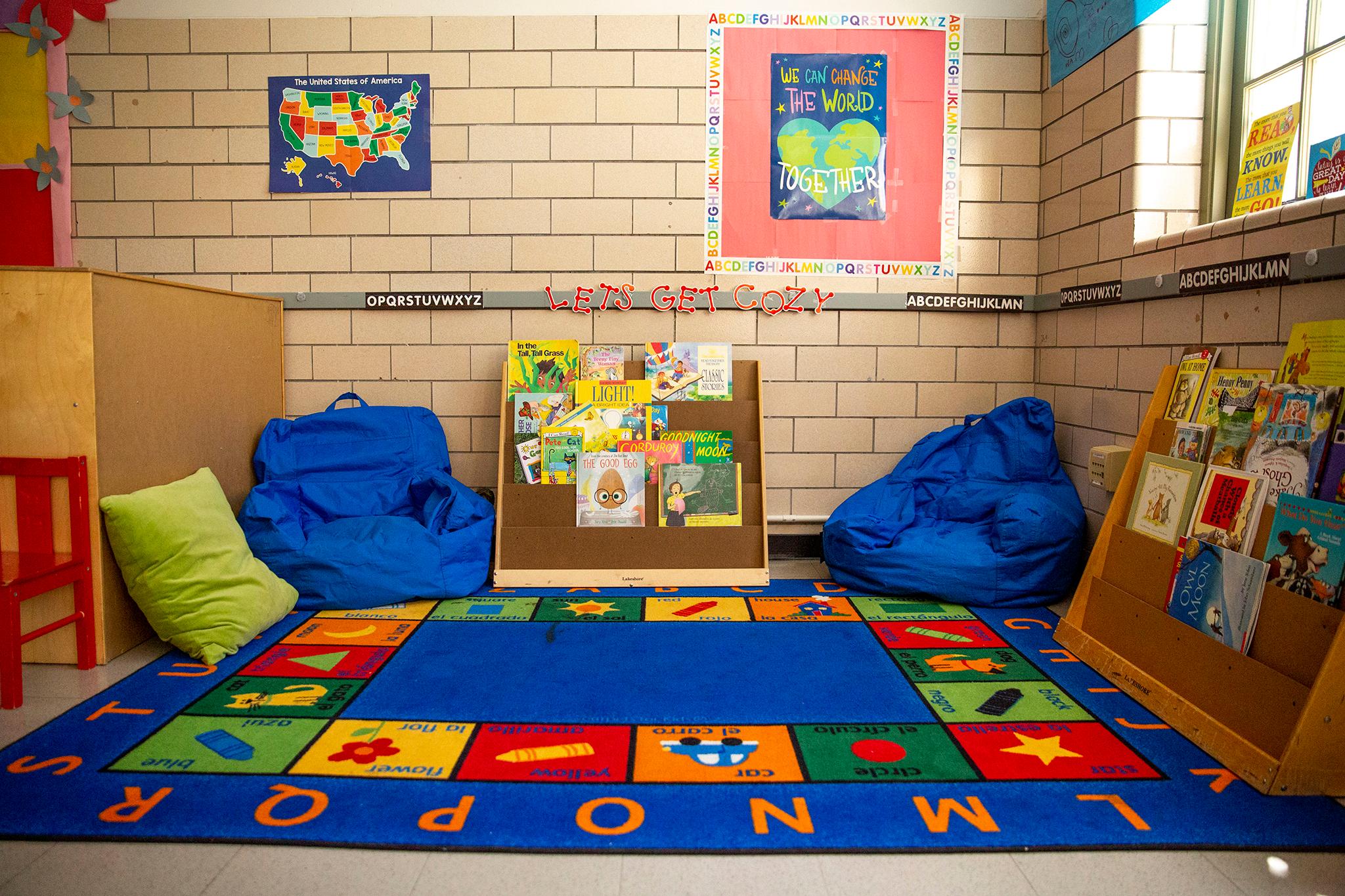Childcare in Denver is expensive. Full-time infant care costs $1,730 a month on average, according to childcare software management system Brightwheel Connect's analysis of 377 centers in the city.
The economics of childcare centers leave parents -- who are often paying the equivalent of a second mortgage -- baffled. Just how rich are these centers getting off of vulnerable families' hard-earned cash?
Not very, it turns out.
Profit margins are thin because the costs of running a center are so high, and asking parents to pay more isn't realistic, according to a research team from the University of Denver.
Toward the beginning of the pandemic, almost 10% of childcare centers in Colorado closed, according to the Bell Policy Center, and provider Pam Melot told Denverite many continue to struggle to retain staff and make ends meet.
Providers told us many early childhood educators are paid near minimum wage and can't afford the area, so they leave the field entirely, forcing centers to shut down classrooms. And centers don't have the flexibility in their budgets to offer raises and enticing benefits, according to the Bell Policy Center.
So what's your tuition actually buying?
Over half of a childcare center's budget goes to salaries and benefits, according to the Center for American Progress, which did a breakdown of costs in 2018.
For infant care, which has a low student-teacher ratio, 68% of costs go to salary and benefits. For toddler care, that number is 62%. And for preschool, where student-teacher ratios are higher, that's 56%. And yet educators are still working well under a livable wage and paid far less than their colleagues who teach kindergarten, according to the Bell Policy Center.
Beyond staffing, the costs break down as follows, depending on the age of students served:
- Rent, utilities and maintenance expenses amount to about 9% to 14% of costs.
- Office and administrative expenses, which include supplies, equipment, phone, internet, fees and permitting, amount to around 15% of costs.
- Classroom materials and food amount to between 8% and 13% costs.
According to the Center for American Progress, reducing the student-teacher ratio in Colorado, raising salaries, increasing retirement benefits and contributions to healthcare expenses would all dramatically increase costs -- by roughly $1,000 a month per child.
Early childhood educator and University of Colorado Denver professor Liliana Flores Amaro said families and centers are asking each other: "Is it on the program to make things more affordable? How much more can parents pay to cover staff salaries, and building rents and all of that stuff?"
Parents can't afford to pay more, dozens have told us throughout our series on childcare in Denver. And programs need more money to continue to operate, directors have said.

The solution is more public support, said Flores Amaro and other childcare providers.
The Biden administration has tossed around the idea of free pre-K, but so far, it hasn't gained traction.
Governor Jared Polis and state lawmakers passed a bill that allows for 10 hours of preschool per week for free for every four-year-old in Colorado. Denver offers subsidized preschool for all four-year-olds and some three-year-olds, through the Denver Preschool Program.
During this past legislative session, state lawmakers took some action to help fund childcare programs, including passing a bill that would give $100 million in federal COVID-19 emergency funds to childcare programs -- both formal centers and at-home care.
That policy is headed to the governor's desk for review, said Polis spokesperson Conor Cahill.
While $100 million is a lot of money, it doesn't touch the $500 million the Bell Policy Institute said the state is behind on in funding early childhood education and the whopping $1.17 billion it would take to help centers pay educators livable wages.
"Having young children is difficult," Flores Amaro said. "It's hard, and a lot of families need a network of care and support themselves. And that doesn't come cheap. The money is not going to come from parents who're stretched and strapped as it is. It's not going to come from the programs, which are stretched and margins [are] thin as it is."
Explore the series
Multi-year waitlists, tuition as expensive as a second mortgage: Denver is in a childcare crisis
How to find childcare in Denver
Denver's broken childcare system forced this single mom to declare bankruptcy
This early-childhood educator couldn't afford childcare for her six-year-old. Why keep teaching?
Here's what being 'super, super, super lucky' looks like in Denver's childcare crisis











